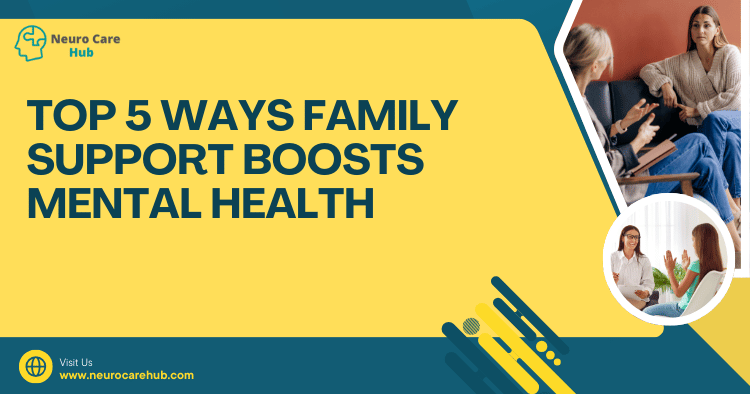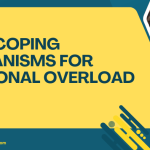Table of Contents
- Introduction
- 1. Emotional Support
- 2. Encouragement for Professional Help
- 3. Shared Responsibilities
- 4. Building Resilience Together
- 5. Creating a Safe Space
- FAQs
- Conclusion
Introduction
Family is often the backbone of our emotional and psychological well-being. The bond between family members can play a pivotal role in enhancing mental and neurological health. In this article, we will discuss the top five ways family support can significantly boost mental health, making life a little brighter and more manageable.
1. Emotional Support
Emotional support from family members can act as a cushion during tough times. When individuals face mental health challenges like anxiety, depression, or stress, having someone to listen and empathize can make all the difference.
The Benefits of Emotional Support:
- Listening Ear: Family members often provide a safe space to share feelings without judgment.
- Validation: Knowing that your feelings are recognized and understood can reduce feelings of isolation.
- Stress Relief: Sharing burdens can alleviate stress, allowing individuals to cope better with their challenges.
A study published in the Journal of Family Psychology found that emotional support from family significantly reduces the impact of stressors on mental health. You can read more about this here.
2. Encouragement for Professional Help
Sometimes, family members can play a crucial role in encouraging their loved ones to seek professional help. Mental health issues often carry a stigma, and having family support can make it easier for individuals to take that important step toward recovery.
How Family Encouragement Helps:
- Increased Awareness: Family members can help identify signs of mental health issues that the individual may not recognize.
- Reduction of Stigma: A supportive family can diminish the stigma associated with seeking therapy or counseling.
- Accompaniment to Appointments: Family members can offer to go with their loved ones to therapy sessions, making the experience less daunting.
According to the National Alliance on Mental Illness (NAMI), family involvement in the treatment process can enhance the effectiveness of mental health therapies. Learn more here.
3. Shared Responsibilities
When family members share responsibilities, it not only lightens the load but also fosters a sense of teamwork and unity. This can be especially helpful for individuals struggling with mental health challenges, as it reduces feelings of overwhelm.
Benefits of Shared Responsibilities:
- Reduced Stress: Sharing household chores and responsibilities can alleviate anxiety and stress.
- Improved Relationships: Working together fosters closeness and collaboration among family members.
- Encouragement of Routine: A shared structure can help individuals maintain a daily routine, which is vital for mental health.
Here’s a simple table showcasing how shared responsibilities can benefit each family member:
Responsibility Benefit for Family Member Cooking Promotes healthier eating habits Cleaning Reduces clutter, easing anxiety Childcare Strengthens bonds and provides support Financial Planning Alleviates financial stress
4. Building Resilience Together
Family support is essential in building resilience, the ability to bounce back from adversity. Resilient individuals can adapt to challenges and maintain their mental health despite difficulties.
Ways Families Foster Resilience:
- Open Communication: Encouraging open discussions about feelings helps family members express themselves and learn coping strategies.
- Problem-Solving Together: Tackling problems as a unit can enhance critical thinking and collective resilience.
- Celebrating Successes: Recognizing and celebrating achievements, no matter how small, can boost confidence and self-esteem.
Research from the American Psychological Association indicates that families who work together to face challenges often produce members with higher resilience. For more insights, check this resource.
5. Creating a Safe Space
Creating an environment where family members feel safe to express themselves is crucial for mental health. A safe space encourages vulnerability, allowing individuals to share their thoughts and feelings freely.
How to Create a Safe Space:
- Nonjudgmental Listening: Encourage family members to listen without interrupting or criticizing.
- Confidentiality: Assure that shared feelings and experiences remain confidential to build trust.
- Consistent Check-ins: Regularly checking in on each other’s mental health fosters open lines of communication.
A safe family environment can significantly reduce anxiety and depression rates. The Mental Health Foundation provides resources on how to create supportive spaces at home, which you can explore here.
FAQs
Q: How can I encourage my family member to open up about their mental health?
A: Start the conversation during a calm moment. Use “I” statements to express concern and let them know you are there to listen without judgment.
Q: What if my family is not supportive?
A: Seek external support from friends, support groups, or professional services. You can also communicate your needs clearly to your family.
Q: Can family support replace professional help?
A: While family support is invaluable, it should complement, not replace, professional help for mental health issues.
Conclusion
Family support is a powerful tool in improving mental and neurological health. By providing emotional support, encouraging professional help, sharing responsibilities, building resilience, and creating a safe space, families can cultivate an environment that fosters mental well-being. Remember, you don’t have to face mental health challenges alone—lean on your loved ones, and let that support shine through.
Also look for related insights on how family support can enhance neuro care effectiveness, and the impact of mental health on neurological disorders. Share your thoughts or experiences in the comments below!






